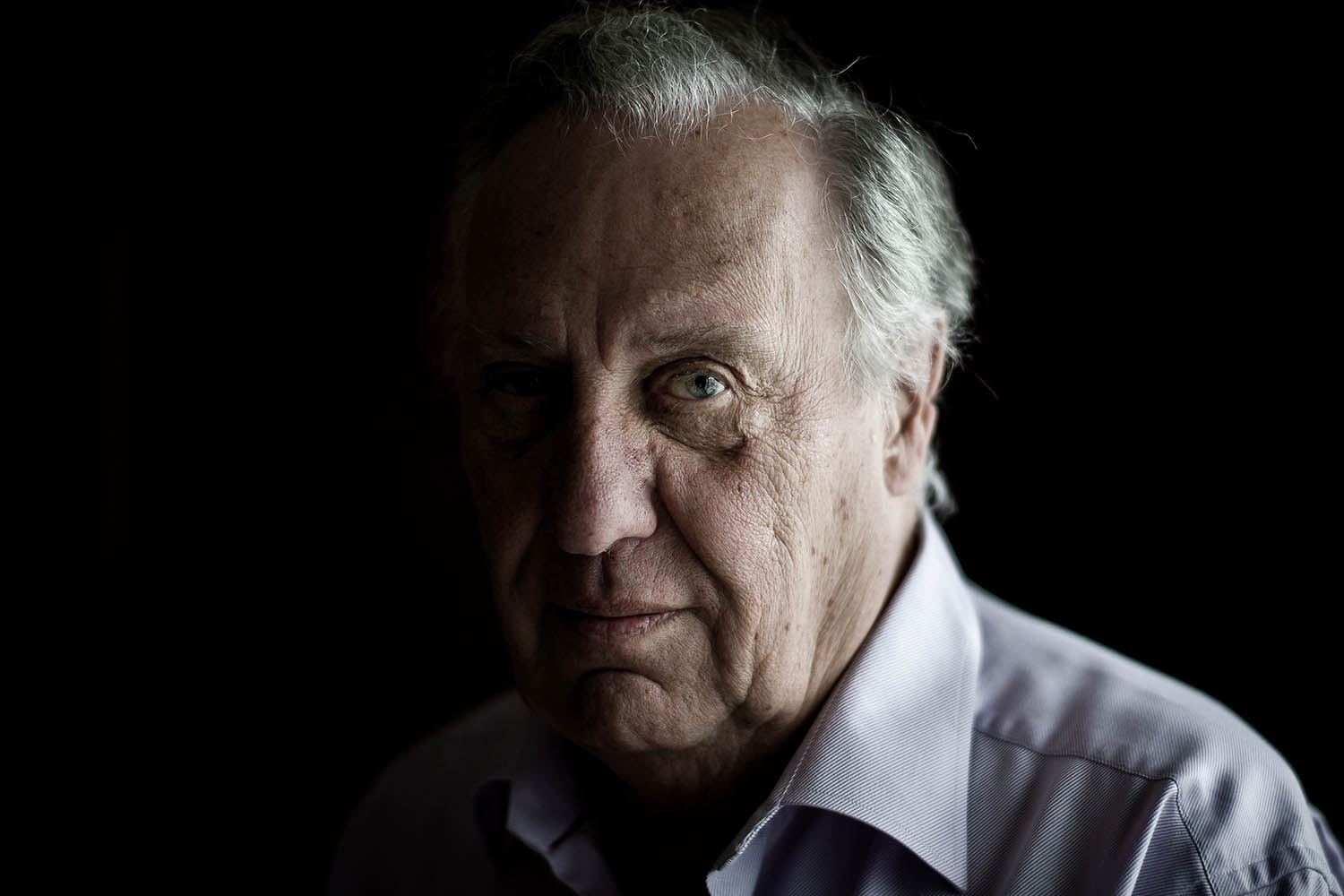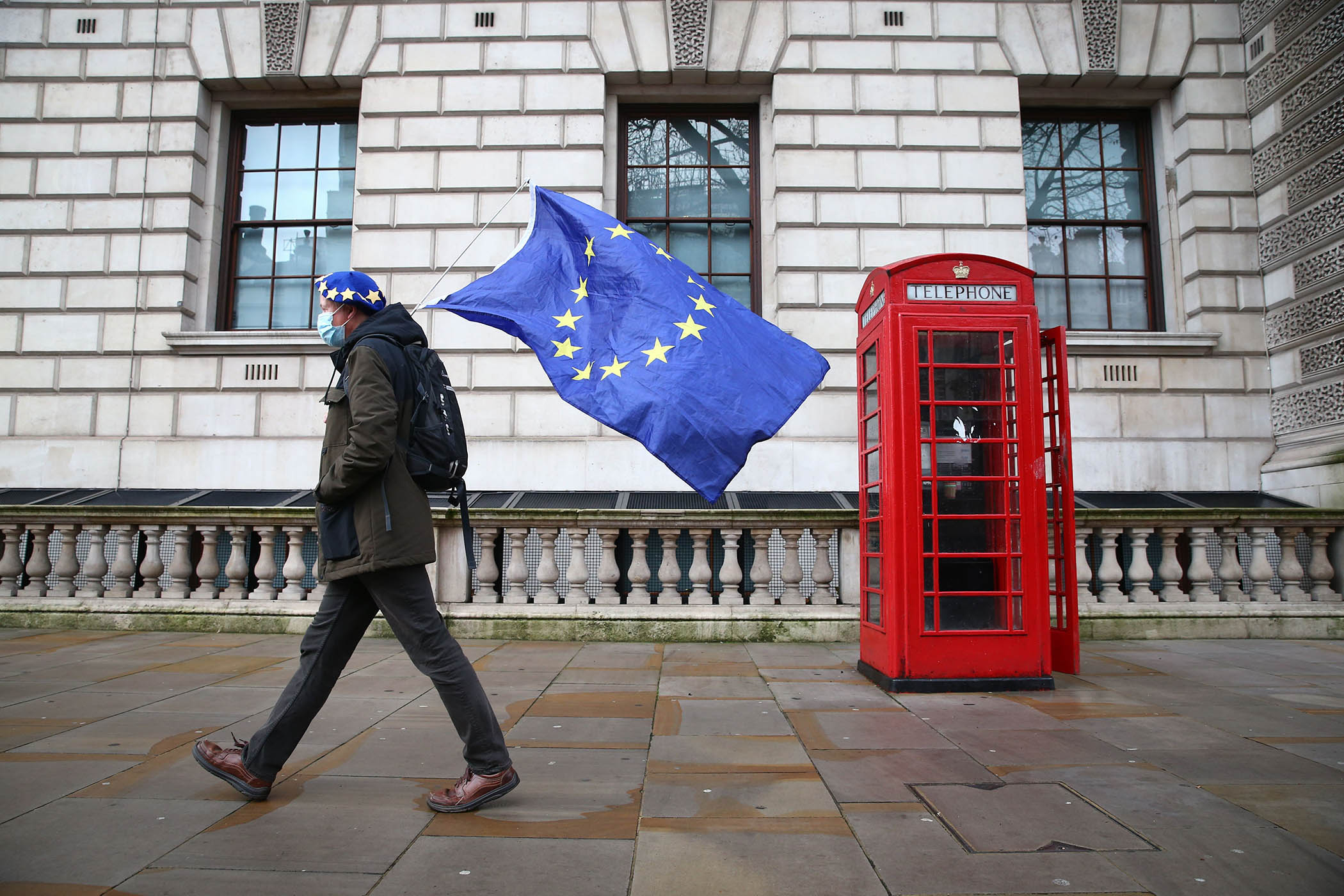The first Frederick Forsyth book I read was his first, a nonfiction account of the Biafran war, the Nigerian civil war of 1967-70: The Biafra Story (1969). I had been a mesmerised bystander to this conflict having lived as a teenager in Western Nigeria throughout the war’s duration. Two of my Nigerian friends had been very reluctant conscripts in the Biafran army, and I myself had been profoundly shaken by what I had seen of the war (on Nigerian TV) and by my own experiences of living in a country that was in the process of tearing itself apart. I will not quickly forget being strip-searched by Nigerian soldiers in a room somewhere in Lagos airport. They let me go – I was down to my Y-fronts – after they discovered no drugs or money. So I was very curious to see what Forsyth had to say.
Forsyth’s Biafran book is absorbing – as absorbing as a work of fiction, as it pretty much is, being an unashamedly partisan and rose-tinted account of plucky little Biafra fighting off the massed forces of federal Nigeria and the west. Forsyth seemed to have fallen headlong under the spell of Biafra’s charismatic leader, Odumegwu Ojukwu. Forsyth seemed unable to see that the very idea of Biafra seceding from the Republic of Nigeria and taking with it all its oil wealth was, from the outset, a crazy, doomed enterprise. Ojukwu’s megalomania and absurd dreams of independence were fundamentally responsible for the million-plus deaths that followed. Interestingly, Forsyth has confessed to having been recruited as an MI6 stringer when in Biafra. Another novelist-spy. He was there for two years, very close to the fighting. He was a vigilant, brave and experienced reporter who had quit his job at the BBC to stay in Biafra. He had seen a lot, to put it mildly. After the “fiction” of The Biafra Story, it was time to assault the real thing. And so, in 1971, The Day of the Jackal was born. This was the second Forsyth work that I read.
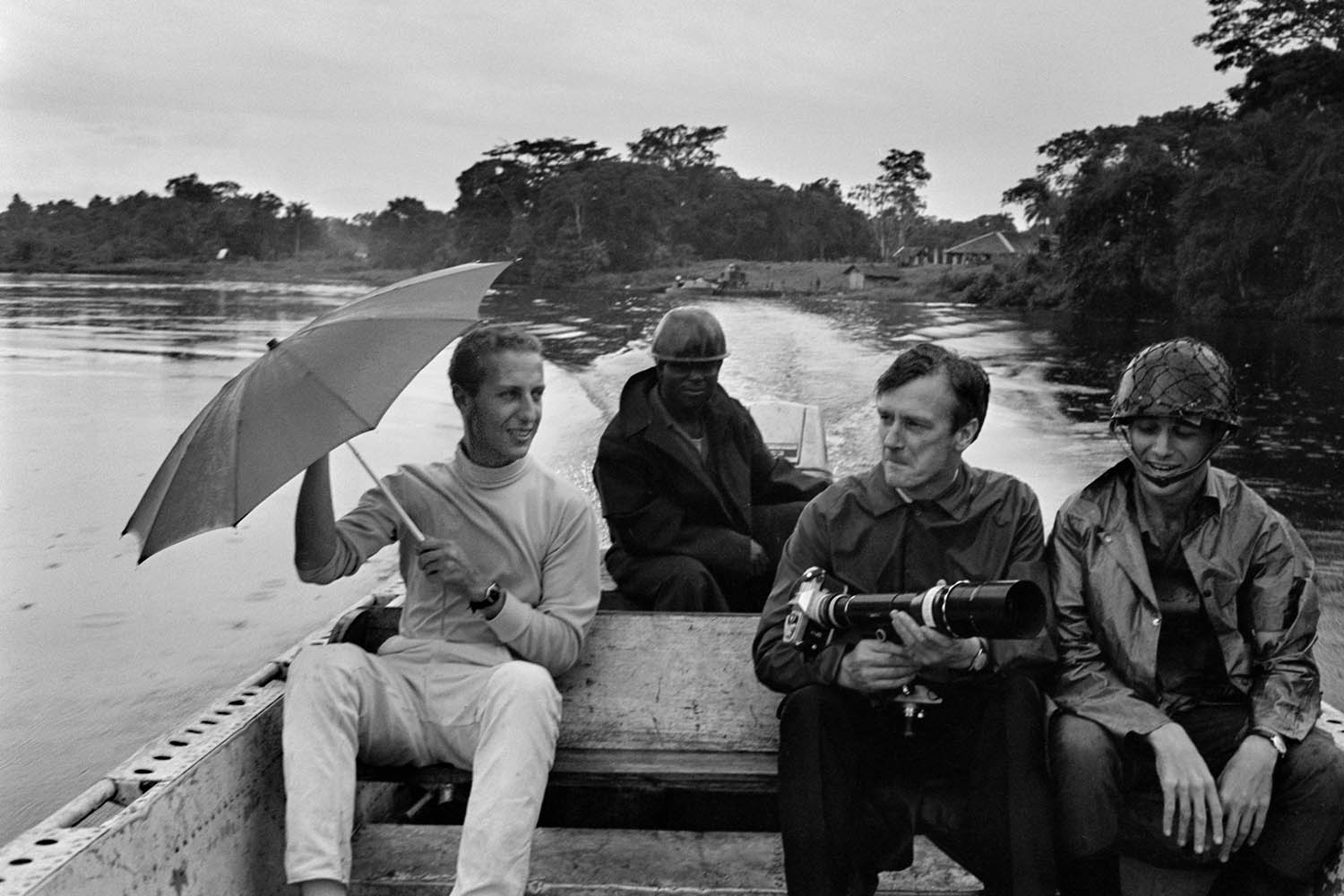
Frederick Forsyth (left) during his time as a reporter in the Nigerian civil war, 29 May 1968
In the 1960s, Forsyth had been a Reuters correspondent and had covered the impact of the Algerian war on France and French society, including the many attempts to assassinate President De Gaulle, seen by the white Algerian pieds-noirs as a gutless traitor. This was to be the background to his first novel. The narrative of Forsyth’s novel involves an imaginary assassination attempt on De Gaulle, paid for by the OAS, the white Algerian underground army. They recruit an unnamed English professional hitman – code-named the Jackal – to carry out the job. And he almost succeeds.
With hindsight, one can see how bold a first novel this was. The subject matter was not one that would necessarily interest British or American readers – Forsyth’s natural audience – and it had a further disadvantage in that every reader would also know that the purported assassination didn’t take place. Where’s the suspense? In fact, Jackal is very suspenseful, surprisingly. It’s in the very small class of how-they-almost-did-it narrations – stories where the finale is known at the outset. This category is more effective in cinema – no-one watches All the President’s Men or Argo, for example, curious to find out what happens at the end. It’s what happens before the end that compels. It’s a rare type of novel, however: Jackal is not a parallel-universe novel; it’s closer to spy novels, or conspiracy-theory novels, like Don DeLillo’s Libra or Richard Condon’s novel Winter Kills, about the JFK assassination – the subtextual claim being that this is something that may have happened (that we don’t know about) or could have happened. Rooted in a real historical world with real characters mingling with the fictional, such novels take the reader on an imaginary journey beneath the actualité. I wonder if Forsyth was familiar with Geoffrey Household’s Rogue Male (1939). This is surely the great precursor of Jackal. An Englishman – also unnamed – decides to assassinate a European dictator (unequivocally based on Adolf Hitler) and sets about an elaborate plan to stalk and shoot his prey. We know the assassination doesn’t happen but it doesn’t affect the novel’s success.
It is worth remembering that ‘Jackal’ was Forsyth’s first novel and to this extent it is a remarkable achievement
It is worth remembering that ‘Jackal’ was Forsyth’s first novel and to this extent it is a remarkable achievement
The book was something of a mould-breaker in the world of espionage thrillers. Forsyth was an experienced journalist but Jackal was his first novel – and it shows. Though he does not write with “a pen of brass” (as Virginia Woolf remarked about Vita Sackville-West), the kindest thing one can say about his prose is that it’s workmanlike. It doesn’t actually matter that much because the defining factor of Forsyth’s style is the superabundance of facts and figures. Ever wondered how many steps there are from the threshold of the Élysée Palace to the gravelled forecourt? Six – Forsyth tells us with adamantine assurance. This is hardly a new trick; in fact, one might claim again there was another precursor: Ian Fleming.
Forsyth must have read the Bond novels because you find in Jackal the same scrupulous itemising of meals, restaurants, street names, types of cars, makes of weapons, precise notations of acronyms and so on. The difference is that Fleming’s world always edges on fantasy and glamour. Forsyth is rooted in the nitty-gritty of France in 1963. Trains leave at specific times from real stations. There are three pages on the complex organisation of French policing. Foreign words are given their translation in square brackets. To be candid, it’s a bit overdone: Forsyth is very heavy on exposition, always telling not showing, and sometimes the pages of explanation can be tiring – one wonders where the editorial blue pencil was.
In fact, Forsyth was badly served by his then editor, whoever he or she was. There are multiple instances of word-repetition in adjacent sentences – elementary copy-editing corrections, one would have thought. The text has the look of being rushed through after a cursory glance. Another problem is what Fowler called the “elegant variation”. Because Forsyth doesn’t name his protagonist, he falls back on all manner of synonyms to make the narrative flow and make sense in order not to keep saying “he” all the time. On one page the hitman is referred to, in 10 lines, as “the Englishman”, “the assassin”, “Mr Jackal”, “the visitor” and “the Englishman” once again. Had Forsyth named his central character, this would not have been the somewhat irritating tic it is throughout the novel. But, in a way, it was a price worth paying – the Jackal’s anonymity is the mystery at the centre of the whole plot.
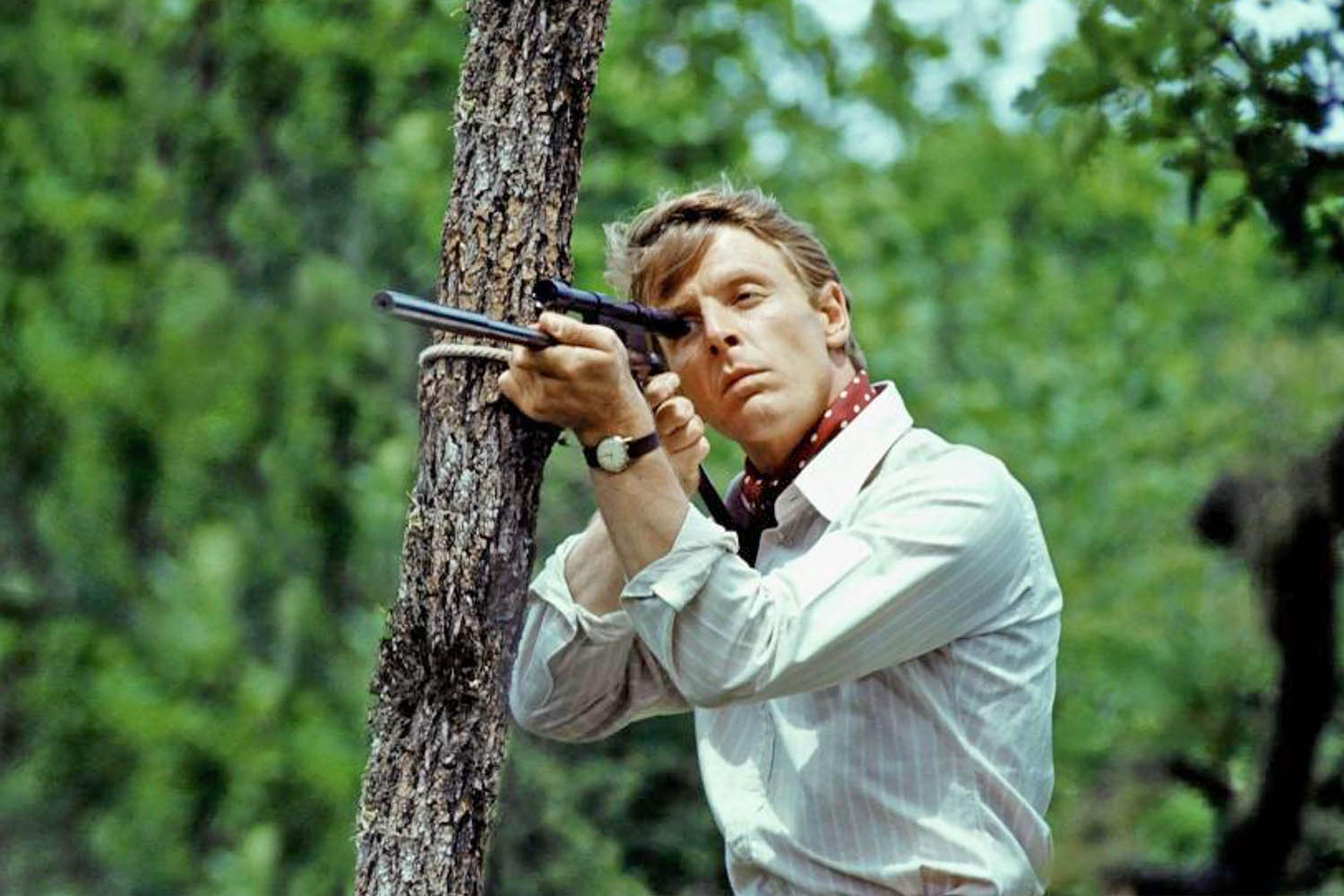
Edward Fox in The Day of the Jackal (1973)
It may be something to do with his journalistic background, but Forsyth makes every effort to make readers believe that what they are reading is real, not fiction. For example, there is a footnote, an “author’s note” explaining why the old façade of the Gare Montparnasse no longer exists. Reference is also made, quite early on, to the fact that De Gaulle was never assassinated but died from a heart attack in 1970. The authorial presence also twice refers forward to the November 1963 assassination of Jack Kennedy (the events of Jackal take place in the summer of 1963). Forsyth also, from time to time, feigns a kind of ignorance – as if he is not in possession of all the facts. For example: “Just when the answer came to him is not exactly known, but it is fair to presume it was within three days from 7th July.” This type of disingenuous comment occurs regularly throughout the novel – as if it weren’t a fiction conceived by the mind of Forsyth but was instead some kind of forensic investigation in which there would inevitably be some areas of doubt and speculation.
Related articles:
Forsyth makes every effort to make readers believe that what they are reading is real, not fiction
Forsyth makes every effort to make readers believe that what they are reading is real, not fiction
The literal nuts and bolts of detail are a Forsythian forte. The specifications of the assassin’s rifle, its construction and testing are a 10-page tour de force. Remorselessly and relentlessly, this accumulation of brute, precise fact gives the novel, this work of fiction, something of the confidence and solidity of an encyclopedia. But it only succeeds because the onward drive of the narrative is so addictive. Without that motive force it would be pure boilerplate. One sees the influence of Forsyth’s method in lesser hands – accumulation of detail is not enough on its own. It’s an embellishment, a useful gilding, not a means to an end.It is worth remembering that Jackal was Forsyth’s first novel and to this extent it is a remarkable achievement. His subsequent novels, The Odessa File and The Dogs of War, fulfilled the promise of his first. In this regard, he’s a bit like Ian Fleming. The first four or five Bond novels are far and away the best. Then the toiling effort of writing more becomes increasingly visible. The same has to be said of Forsyth’s canon: the later novels don’t measure up to the early ones. Forsyth admitted to finding the process of writing a novel very hard – a blood-from-a-stone experience that he did not relish. However, re-reading The Day of the Jackal all these years later, it’s possible to see some really accomplished, if instinctive, talent at work.
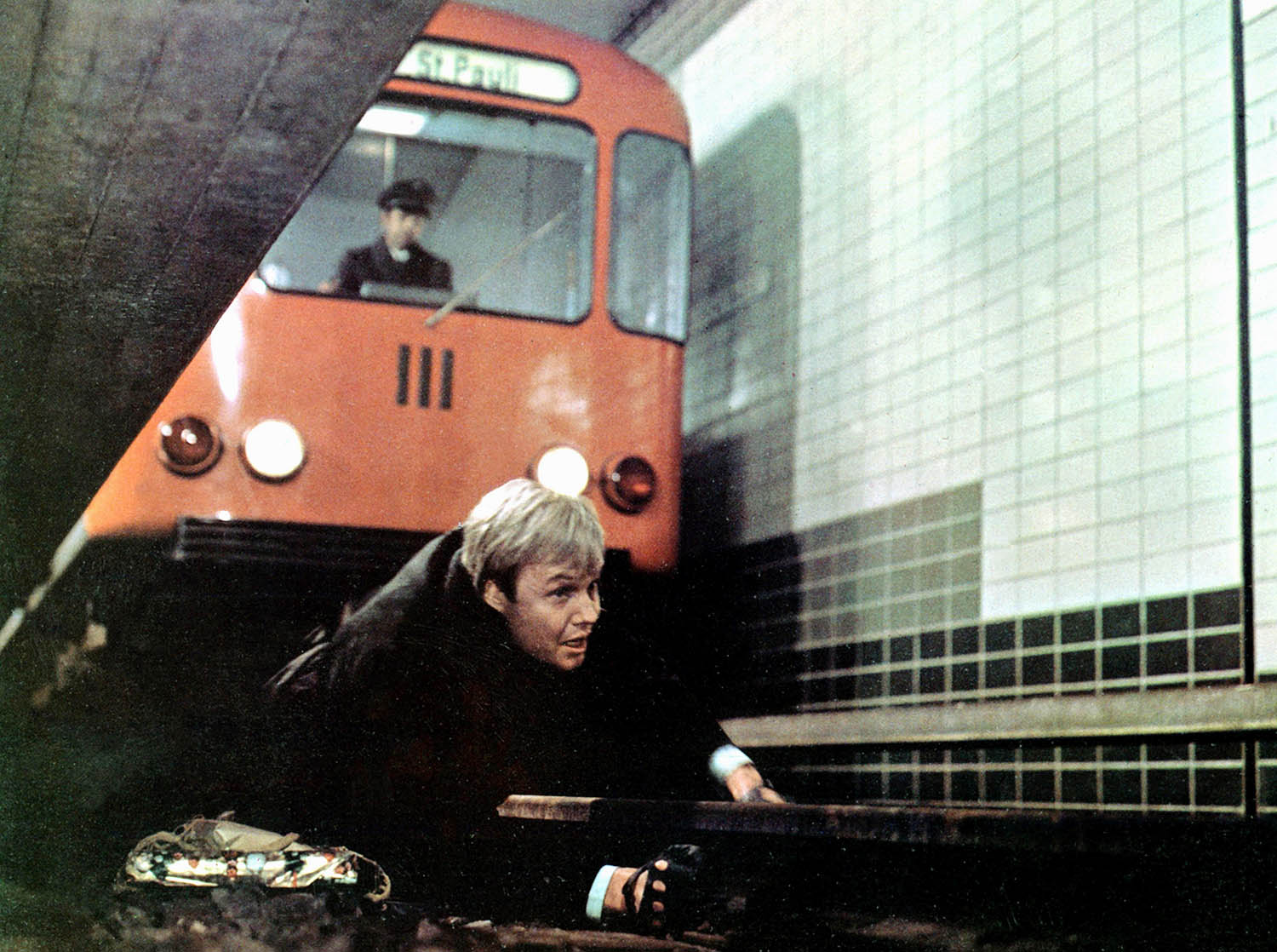
Jon Voight in The Odessa File (1974)
The novel is something of a slow burn, often it sags a bit under the weight of its detail and exposition. Forsyth seems compelled to give laborious backstories to characters as they appear and the narrative drive halts as we learn all about this or that individual’s past. But that slow burn begins to conflagrate very effectively, particularly as the manhunt section of the story kicks in. Forsyth writes as an omniscient author and we regularly move away from the Jackal to encounter the personalities and dilemmas of those French and English policemen hunting him down. Forsyth’s use of this cross-cutting technique is sure-footed and it’s a very tricky method to pull off continually. His clever withholding of information – facts that will detonate at the climax of the novel – is done with subtle sleight of hand, far more unobtrusively than Le Carré, for example, for whom it is also a crucial device.
Newsletters
Choose the newsletters you want to receive
View more
For information about how The Observer protects your data, read our Privacy Policy
Despite its few imperfections, longueurs and rough patches, The Day of the Jackal has been exceptionally and thoroughly thought-through. All its moving parts gracefully intersect and its catharsis is well won. This is what impresses at the end of the day: the many complexities of the narrative artfully handled; the contrasting points of view carefully positioned and counterposed, and the climax of the novel – even though we know the assassination will fail – is genuinely, paradoxically exciting. Perhaps the greatest compliment was paid to the novel in Fred Zinnemann’s excellent film version that appeared two years after publication. Virtually nothing had been changed.
William Boyd’s most recent novel, Gabriel’s Moon, is published by Viking and available at observershop.co.uk. Delivery charges may apply.
Photographs by Philippe Lopez/AFP via Getty Images, David Cairns/Daily Express/Hulton Archive/Getty Images, Alamy Images
